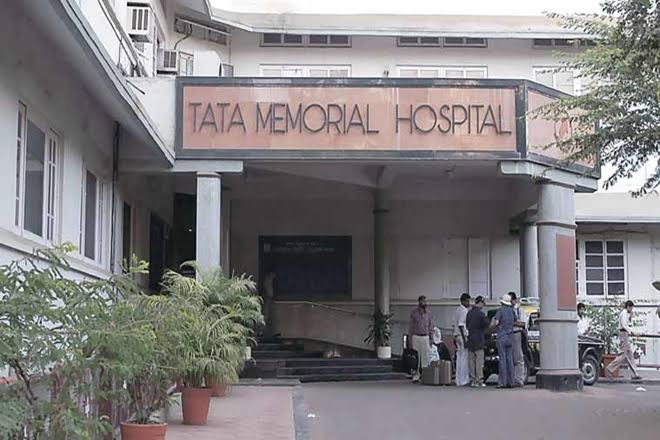Drugs Made From Cancer Tissues and HIV Virus Found to be Effective Against Cancer, Says Research at Tata Institute
Key Highlights of the research paper
Three New drugs developed from Cancer tissues, HIV Virus, Hep C virus show anti-cancer effects in studies at ACTRECT (Tata) Institute, Mumbai Research by Indian doctor, involved in research for 20 years All the medicines inhibit and kill cancer cells in laboratory studies (cell lines) related to liver, cervix, lung, and breast cancers Further studies in animals and human trials will be carried out in future The study in a series of other experiments has irrefutable scientific evidence of the effects of homeopathic medicines Research papers have been published in international peer-reviewed journals and presented at prestigious conferences.A scientific breakthrough in the field of homeopathy research shows hope for cancer treatment. The research was conducted at Tata Memorial's research facility ACTREC under the care of Dr. Rajesh Shah, Director, Homeopathy India Pvt Ltd. Initial results in cancer research with new homeopathic drugs developed from cancer tissues, HIV virus and Hepatitis C virus show unprecedented findings of inhibiting cancer cells in the laboratory model.
This novel research has shown positive effects of three new, high-dilution potentized homeopathic medicines, which are often criticized for lack of scientific evidence. The unique process called homeopathic potentization renders the drugs to be safe yet effective. The development has been lauded as the first-of-its-kind in over fifty years in the field of homeopathy. Dr. Rajesh Shah, the brain behind this path-breaking study was feted with the National Award by the Ministry of AYUSH last year for another drug-discovery,
Dr. Rajesh Shah sharing his insight on the research said, "I have been working on developing new homeopathic drugs. Our studies have shown the killing of cancer cells (apoptosis) as well as inhibition of the growth of cancer cells in different laboratory models. The drugs show anti-cancer activity on cell lines related to the liver, cervix, breast, and lung cancers. Earlier, HIV Nosode and Hepatitis C Nosode have also shown anti-cancer effects in studies in coordination with Dr. A.R. Khuda-Bukhsh, an eminent molecular biologist from Kalyani University, West Bengal. The development process started 15 years ago. I believe the initial results are encouraging."
Dr. Shah's experiments in laboratory models, animal studies, and human trials have shown irrefutable scientific evidence of the efficacy of homeopathy. Interestingly, scientists at IIT-B headed by Dr. Jayesh Bellare, a chemist, have shown the nanoparticles of the source materials in high-dilution homeopathic medicines, which were earlier believed to be containing some kind of 'energy'.
Dr. Raj K Manchanda, former Director-General of CCRH (Central Council for Research in Homeopathy), under Ministry of AYUSH, said, "Nosodes prepared from germs and diseased tissues are commonly used in homeopathic practice. Dr. Shah has scientifically developed new Nosodes from specific cancer tissues as well as a certain virus, using modern techniques. The Cancer Nosode, the HIV Nosode and the Hepatitis C Nosode demonstrate anti-cancer efficacy in cell-line models is strong preliminary evidence towards opening up many new research avenues. Further validation using this Nosode in animal and human models must be explored."
Dr. Vedang Murthy, a radiation oncologist and researcher at Tata Memorial Hospital Mumbai, observed, "Cancer is a very difficult disease to treat and we are always on the lookout for new approaches in its treatment. Early research in the laboratory with a drug prepared from cancer tissues has shown activity against cancer cells. Dr. Shah has shown preliminary results which should be strengthened by further research. These results may indicate some efficacy of homeopathy in the laboratory model. This seems like an early exploration of untapped potential of homeopathy against cancer."
Research papers have been published in international peer-reviewed journals and presented at prestigious conferences by Dr. Shah. The scientific monographs have been submitted to the concerned government departments for regulatory evaluation.
In the recent past, Dr. Shah has collaborated with about 35 scientists from seven institutions such as Haffkine Institute, IIT-Bombay, ICT, ACTREC, Nair Hospital, Mumbai University, etc. for experiments related to new drug discovery.

 Three New drugs developed from Cancer tissues, HIV Virus, Hep C virus show anti-cancer effects in studies at ACTRECT (Tata) Institute, Mumbai
Three New drugs developed from Cancer tissues, HIV Virus, Hep C virus show anti-cancer effects in studies at ACTRECT (Tata) Institute, Mumbai









.jpeg)

.jpg)


.jpeg)
.jpeg)


.jpeg)
.jpg)





.jpeg)


